The Illusion of Equal Citizenship in Pakistan: Discrimination at the Ballot Box and Beyond
Religious Freedom Experts Discuss Politically Fueled Religious Discrimination Against Ahmadi Muslims in Pakistan
Pakistan’s religious minorities live under political and religious apartheid despite a constitutional guarantee of equal rights. On June 29, 2022, a panel of subject matter experts spoke on the discrimination against members of the Ahmadiyya Muslim Community in Pakistan at the International Religious Freedom Summit held at the Renaissance Hotel in Washington D.C.
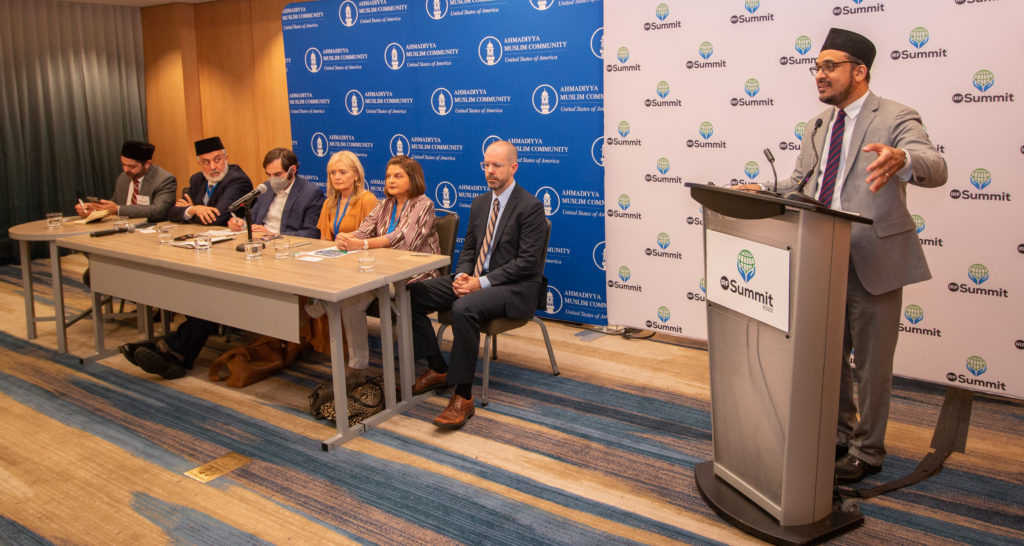
The panel focused on voting rights – the most fundamental right of a citizen in a democracy – and the impossible situation Ahmadis face as they must choose between their right to vote and their right to practice their religion.
The second amendment to Pakistan’s constitution, enacted in 1974, declared members of the Ahmadiyya Muslim Community as non-Muslims. A decade later, Pakistan Penal Code Ordinance XX made it a crime for Ahmadis to practice any aspect of their Islamic faith, ranging from prayer to even uttering the customary Islamic greeting Assalamualaikum (peace be upon you).
Subsequently, many Ahmadis have been jailed for using Islamic greetings, reciting the Holy Qur’an, and practicing Islam in general. In 1985, the Pakistani government introduced a separate electorate for non-Muslims where Ahmadis have to self-identify as non-Muslims in order to vote. The situation became even worse when in 2002, the military-dictator General Musharraf tried to create a joint electorate. However, succumbing to religious parties, he instead created one electorate for Ahmadis and another for everyone else.
“In 2017, the Elections Act mandated a system that automatically enrolls Ahmadis as non-Muslims for purposes of voting, creating a separate list with addresses, which in fact becomes a target list.”
Amjad Mahmood Khan, National Director of Public Affairs for the Ahmadiyya Muslim Community USA.
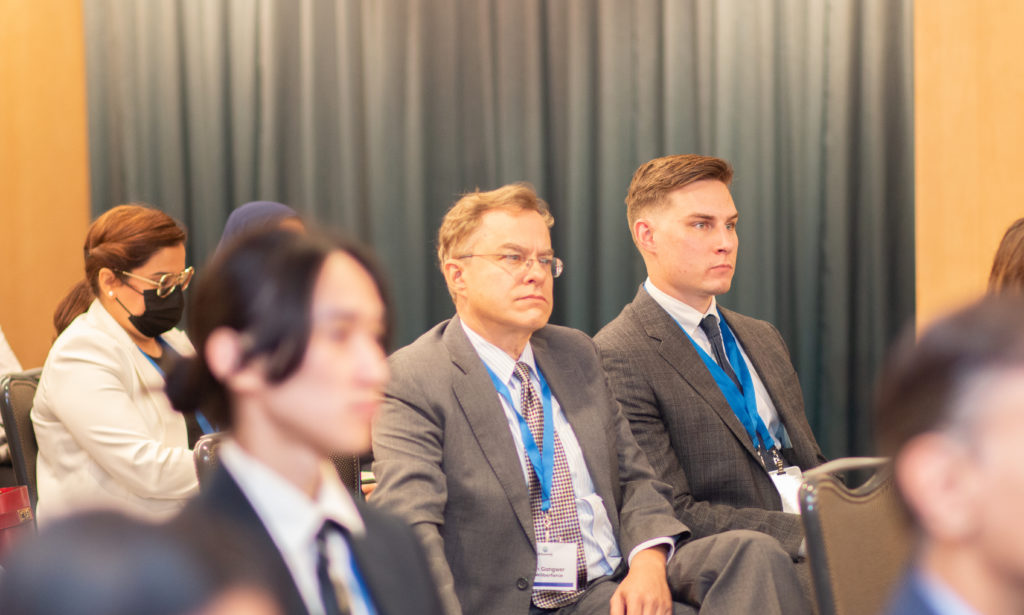

Since 1985, citizenship in Pakistan has used religious identity to restrict fundamental human rights. To identify as Muslims, Ahmadis are required to denounce their founder, Mirza Ghulam Ahmad, as an imposter, or else they must identify as non-Muslims. These laws lead to widespread hatred and violence against Ahmadis that often results in mob-lynching and loss of life.
“It is an impossible situation, to think that you have to disavow your deepest convictions to be a good citizen.”
Dr. Katrina Lantos Swett, the President of Lantos Foundation for Human Rights and Justice,
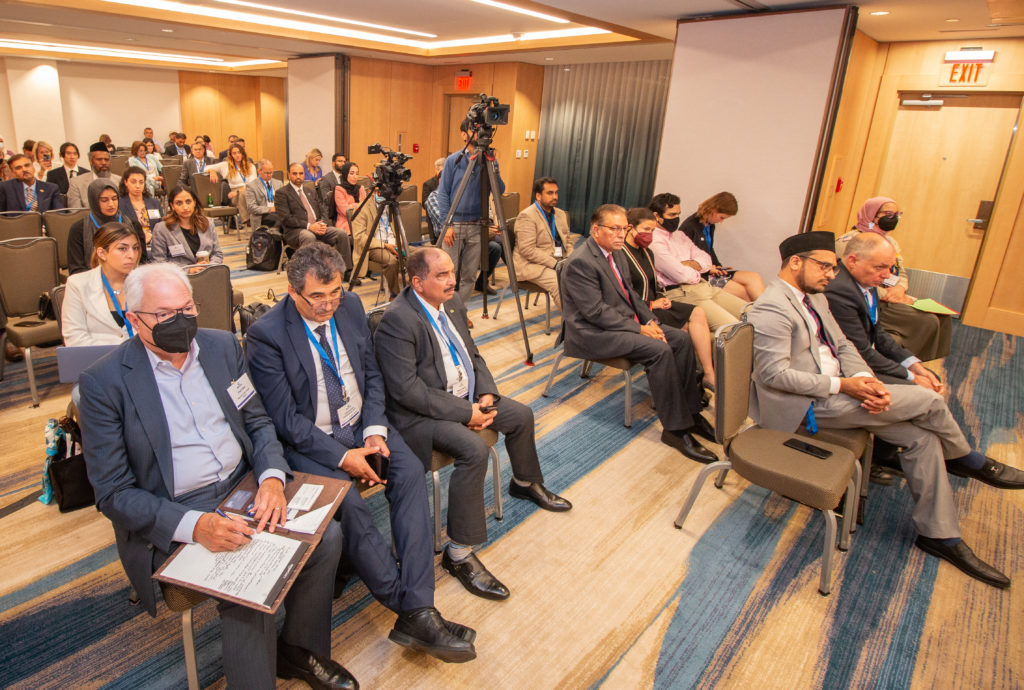

Farahnaz Ispahani, a Senior Fellow at the Religious Freedom Institute, said that this system of apartheid has hijacked an ideal of Pakistan’s founder, Mohammad Ali Jinnah, who envisioned equal rights for all citizens. It spreads hatred through school textbooks and causes discrimination in the workplace and in business dealings. Michael Kugelman, Deputy Director for South Asia at the Wilson Center, described the root cause:
“Those in the political system in Pakistan appease the religious extremists that the regime empowers.”
The state and military use religious parties as assets routinely giving in to their demands.
“To move Pakistan in a positive direction, a penalty should be enacted so there is a price to pay for the human rights violation, there are many tools that are available to move Pakistan into the direction of human rights; however, these have not been used, and we should think about using them.”
Knox Thames, a Senior Visiting Expert at the U.S. Institute of Peace
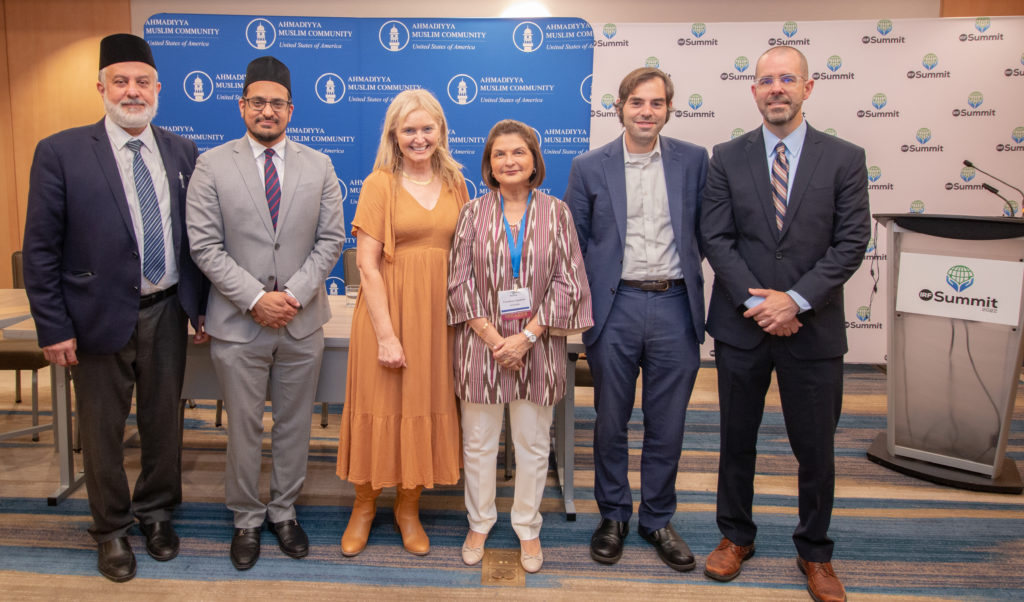

Muhammad Sharif Odeh, President of Ahmadiyya Muslim Community in Israel and Palestine, was asked how the current laws of Pakistan, which claims to be an Islamic Republic, compare to the Constitution of Medina instituted by the Prophet Muhammad (peace be on him). Mr Odeh exhorted that the Charter of Medina gave total freedom to its citizens regardless of faith.
“The Holy Prophet Muhammad had asked for a survey to count people in the city, and he instructed to write down Muslim only if people self- declared as Muslims. He did not ask to spy on people, or if they prayed or not, or if they believed or not.”
Similarly, the Holy Qur’an strictly forbids any government or state to interfere with the religion of its citizens.
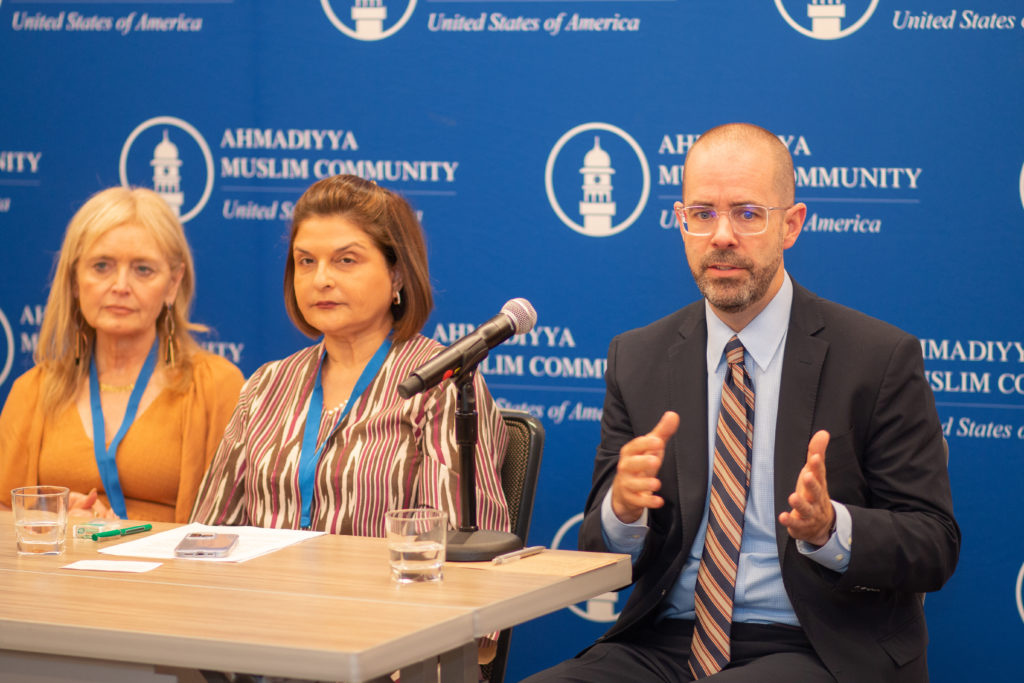

Despite enduring unspeakable cruelties in Pakistan, Ahmadi Muslims exhibit exemplary restraint and patience. Earlier in the day, a special message from the Worldwide Head of the Ahmadiyya Muslim Community, His Holiness Mirza Masroor Ahamd, was shared at the plenary session of the International Religious Freedom Summit, in which His Holiness remarked: “I pray that governments and world leaders recognize that it is the need of the hour to set aside narrow and short term political interests for the sake of peace and harmony in the world. I pray that they come to adopt policies that truly enshrine freedom of belief as an inviolable principle.”

